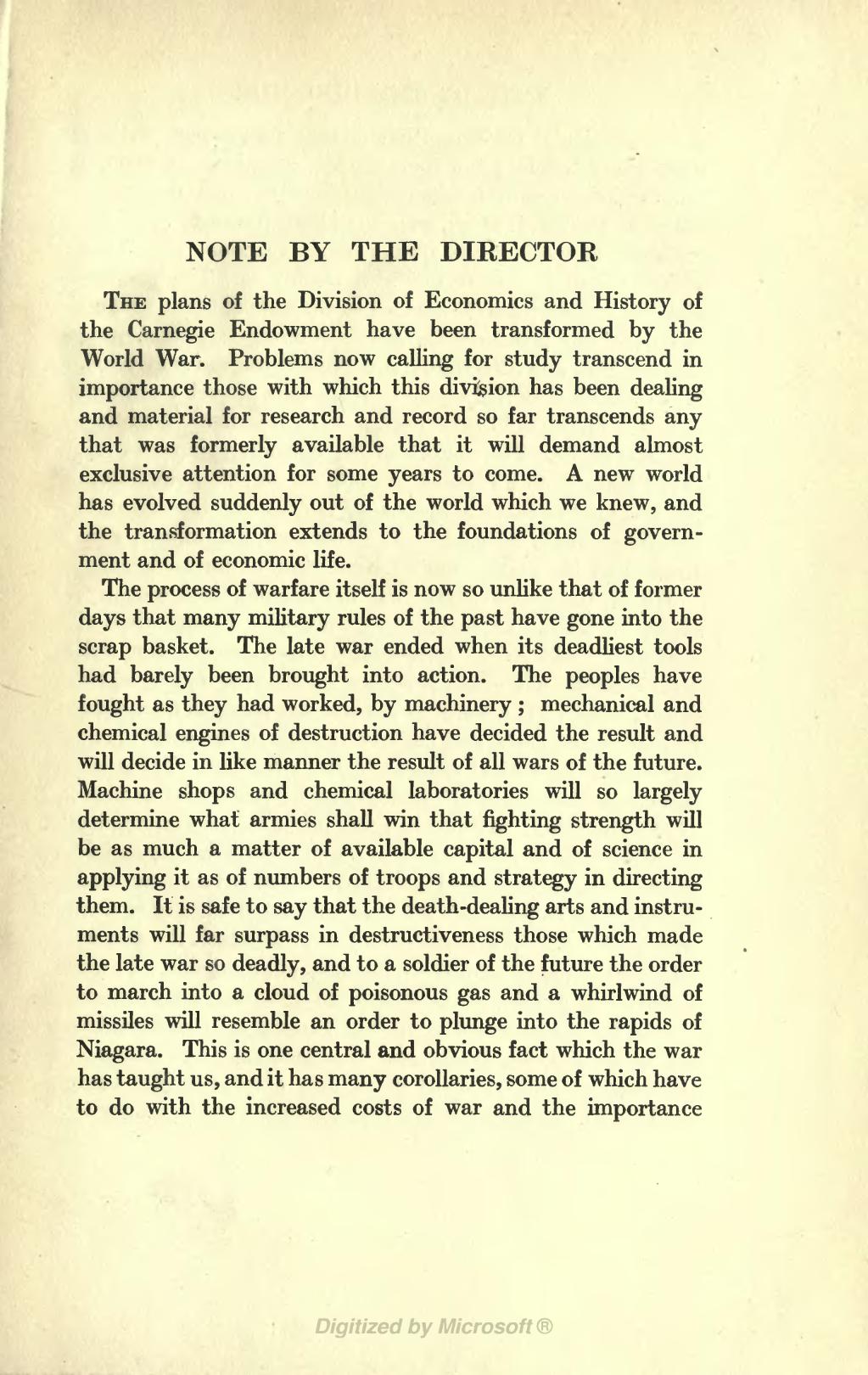NOTE BY THE DIRECTOR
The plans of the Division of Economics and History of the Carnegie Endowment have been transformed by the World War. Problems now calling for study transcend in importance those with which this division has been dealing and material for research and record so far transcends any that was formerly available that it will demand almost exclusive attention for some years to come. A new world has evolved suddenly out of the world which we knew, and the transformation extends to the foundations of government and of economic life.
The process of warfare itself is now so unlike that of former days that many military rules of the past have gone into the scrap basket. The late war ended when its deadliest tools had barely been brought into action. The peoples have fought as they had worked, by machinery; mechanical and chemical engines of destruction have decided the result and will decide in like manner the result of all wars of the future. Machine shops and chemical laboratories will so largely determine what armies shall win that fighting strength will be as much a matter of available capital and of science in applying it as of numbers of troops and strategy in directing them. It is safe to say that the death-dealing arts and instruments will far surpass in destructiveness those which made the late war so deadly, and to a soldier of the future the order to march into a cloud of poisonous gas and a whirlwind of missiles will resemble an order to plunge into the rapids of Niagara. This is one central and obvious fact which the war has taught us, and it has many corollaries, some of which have to do with the increased costs of war and the importance
